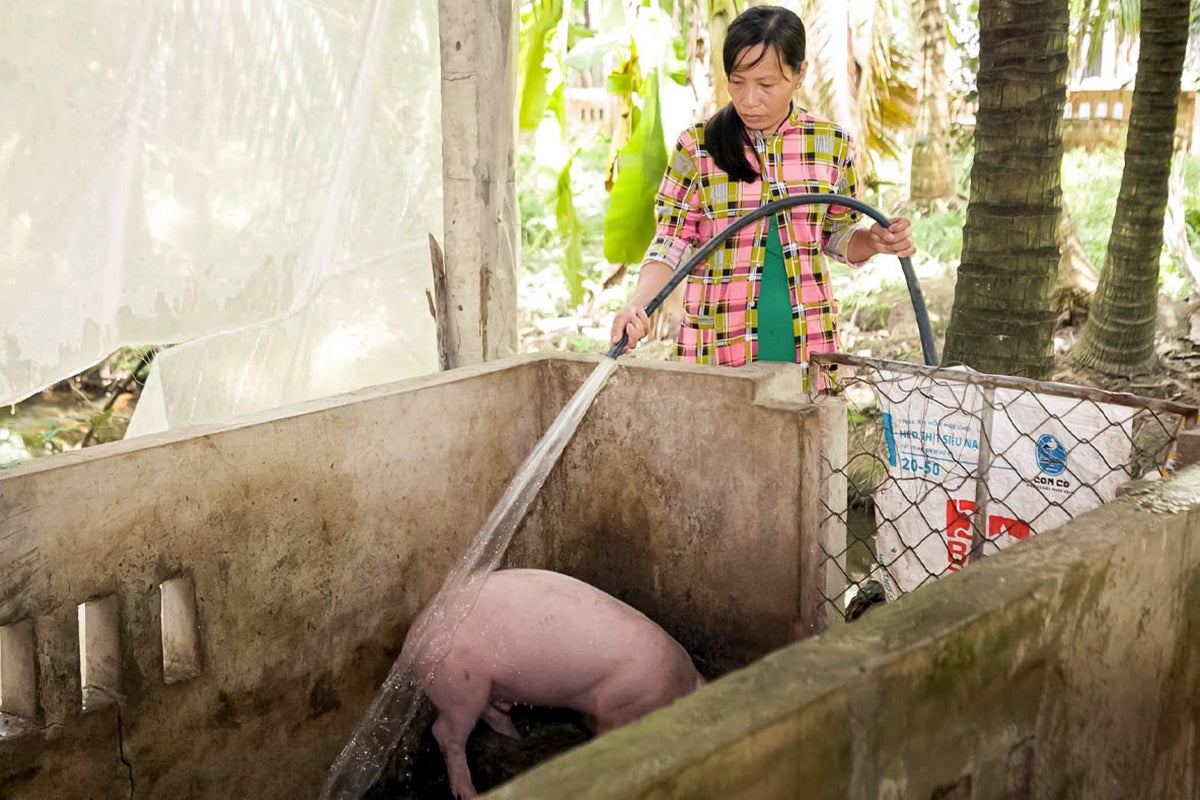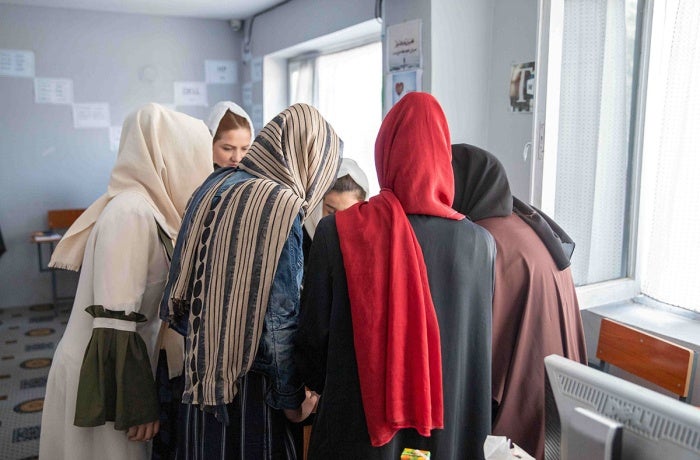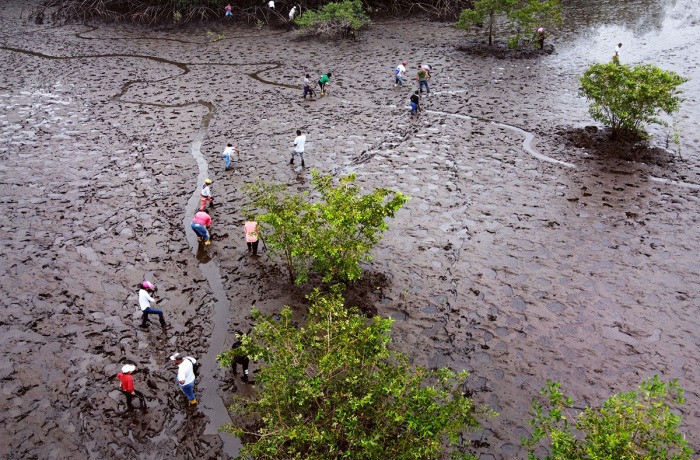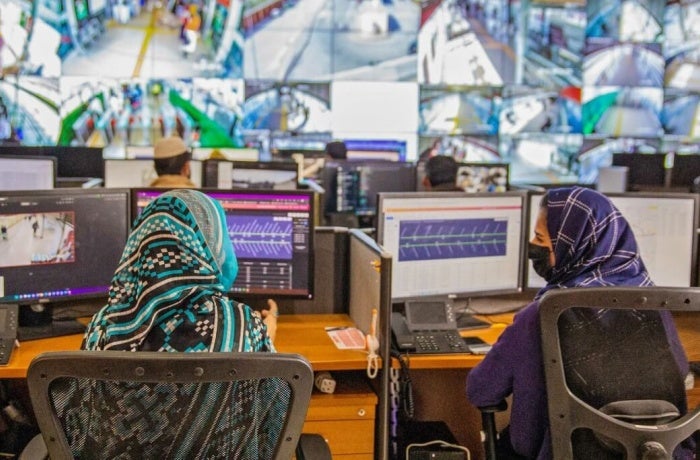Grants and training programmes empower women entrepreneurs in Cambodia and Viet Nam
Before the COVID-19 pandemic, 33-year-old Youn Seau was self-employed cleaning and repairing motorcycles in Keurt, a village in the southwestern Cambodian province of Koh Kong. But when her household was placed in lockdown in 2021, the family struggled to have enough food to eat; even after pandemic restrictions were lifted, Seau struggled to earn an adequate income.
In 2023, Seau was one of 27 women who took part in a two-day training session on financial literacy, small business management, and job-seeking skills run by UN Women. She not only learned how to manage her finances, but also gained hope for improving her situation.
“I’ve become wiser with my spending, considering the pros and cons, and I’ve started making a budget plan,” says Seau. “I’m also now interested in the eco-tourism business.”
.jpg?t=1709232740)
In Cambodia, UN Women’s programming as part of the country’s recovery from COVID-19 served 228 people as of late 2023. The project in Koh Kong included networking workshops to help men embrace more equitable attitudes about gender; a field visit for women to the Tropang Sangke Commune in Kampot Province, to explore its community-based ecotourism programmes; a separate visit to the Women Champions Network in Kampot Province; and coaching sessions on financial skills. In addition, 50 vulnerable women received solar-powered lights for domestic use and 100 women received raincoats and waterproof bags.
Seau, who is a member of the LGBTIQ+ community, said that the training programme not only helped her learn valuable skills but also gave her valuable information about gender diversity that made her feel more confident about her identity.
“I now feel better about being myself,” she said. “I feel happier, more confident and stronger than before.”
Perl Seanglay, another programme attendee, said the lessons made her capable of effectively managing her family’s finances, granting her more autonomy and independence.
“I actively engage in discussions related to our family business with my husband and other community members, applying the negotiation and facilitation skills I’ve acquired”, she said. “The training inspired me to initiate my own income-generating projects, such as selling local products like marine fishery products.”

In the neighbouring country of Viet Nam, Nguyen Phuong was similarly experienced economic hardship as a result of the COVID-19 pandemic. Her family of four sunk into debt and she worried how they could possibly pay it off.
However, in November 2023, Phuong’s family, together with women in need in 11 districts of Tien Giang Province, received a cash grant of VND 5.5 million (around USD 200) from UN Women through the Tien Giang Women’s Union, allowing them to rebuild their livelihoods.
Phuong used her grant to restart her small farm by buying two pigs and followed training from the Women’s Union on their proper care and management. She anticipates earning up to VND 10 million (about USD 400) by selling the pigs after the Lunar New Year.
“I will use the money earned from selling the pigs to fix my house’s leaky roof and buy more piglets so that my family will not have to worry about our meals in the coming days”, she said.
Another grant recipient was Le Kim Tien, 29, a mother with disabilities who has a four-year-old son in Tien Giang Province. She lost all her savings and income from her small grocery shop due to COVID-19.
“In October 2023, I obtained funds from UN Women to expand my small shop”, she said. “I diversified my goods and also acquired new skills for online sales and improved business management.”
She said her income had doubled since making use of the grant, as she was now able to sell to new customers beyond her neighbours.
From October to December 2023, all the cash grant recipients in Tien Giang, including Tien and Phuong, underwent diverse skills training that covered livestock rearing, crop cultivation, economic management, and business skills. The trainings also covered topics such as preventing gender-based violence.
UN Women’s “Emergency Response and Recovery Support for Women at Risk of Violence Most Affected by COVID-19” project, funded by the Government of Australia, distributed grants to a total of 3,388 women in Tien Giang Province and Ho Chi Minh City.
The grants prioritized the most vulnerable, including women-headed households, pregnant women, women with children under the age of two, individuals with disabilities, migrant workers, women with HIV, survivors of violence, and women over the age of 60 who have been impacted by COVID-19.
Nguyen Thi Kim Phuong, Chair of the Tien Giang Women’s Union, stressed the significance of the programme, saying, “It is an essential lifeline to vulnerable women, helping them rebuild their livelihoods during challenging economic and climate change circumstances.”








